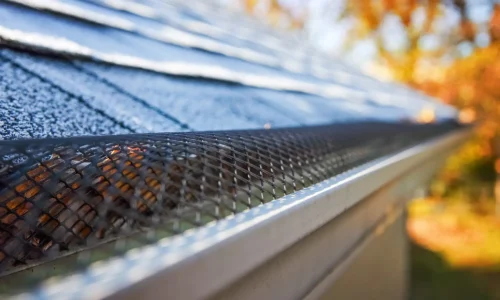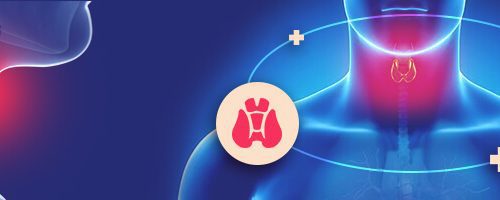In today’s fast-paced world, sleep disorders have become increasingly common, with one of the most prevalent being sleep apnea. Sleep apnea is a condition characterized by interrupted breathing during sleep, which can have serious consequences for one’s health and well-being. CPAP (Continuous Positive Airway Pressure) machines have long been the go-to treatment for sleep apnea. However, they may not be suitable for everyone. In this comprehensive guide, we will explore alternative treatments and strategies for managing sleep apnea, ranging from lifestyle changes to innovative therapies.
Understanding Sleep Apnea
1.1 What is Sleep Apnea?
Sleep apnea is a sleep disorder characterized by recurrent pauses in breathing during sleep. These interruptions can last for a few seconds to several minutes and can occur multiple times throughout the night.
1.2 Types of Sleep Apnea
There are two main types of sleep apnea:
- Obstructive Sleep Apnea (OSA): This is the most common type, where the airway is partially or completely blocked during sleep.
- Central Sleep Apnea (CSA): This type is less common and occurs when the brain fails to send the proper signals to the muscles that control breathing.
1.3 Common Symptoms of Sleep Apnea
Sleep apnea can manifest through various symptoms, including:
- Loud snoring
- Gasping or choking during sleep
- Excessive daytime sleepiness
- Morning headaches
- Difficulty concentrating
- Irritability
The Conventional Treatment: CPAP Machines
The go-to treatment for obstructive sleep apnea has traditionally been CPAP machines. These devices deliver a constant flow of air pressure to keep the airway open, preventing interruptions in breathing. While effective, CPAP machines may not be well-suited for everyone due to discomfort or other factors.
Why Some Seek Alternatives
There are several reasons why individuals seek alternatives to CPAP machines:
- Discomfort: Some find wearing a CPAP mask uncomfortable or claustrophobic.
- Travel: CPAP machines can be challenging to travel with.
- Mild Sleep Apnea: Those with mild sleep apnea may not require a CPAP machine.
- Seeking Variety: Some individuals want to explore other treatment options.
Lifestyle Changes for Sleep Apnea Management
4.1 Weight Management
Losing weight can significantly reduce the severity of treatments for sleep apnea, especially in cases where excess weight is a contributing factor. Even modest weight loss can make a difference.
4.2 Positional Therapy
Changing your sleep position can help. Sleeping on your side, as opposed to your back, can reduce the likelihood of airway obstruction.
4.3 Lifestyle Modifications
Simple changes like avoiding alcohol and sedatives before bedtime, quitting smoking, and establishing a regular sleep schedule can contribute to better sleep quality.
Dental Devices for Sleep Apnea
5.1 Invisalign for Sleep Apnea
Invisalign, known for its use in straightening teeth, has shown promise in treating sleep apnea by repositioning the jaw to open the airway. It provides a more comfortable alternative to CPAP machines.
Surgery as an Option
6.1 Surgical Interventions
Surgery may be considered when other treatments have failed. Procedures like uvulopalatopharyngoplasty (UPPP) or genioglossus advancement (GA) can help widen the airway.
6.2 Risks and Benefits
It’s essential to weigh the risks and benefits of surgical options, as they may not be suitable for everyone.
Medications and Therapies
7.1 Medications for Sleep Apnea
Certain medications can help manage sleep apnea symptoms, but they are typically used in combination with other treatments.
7.2 Therapies and Behavioral Approaches
Therapies like cognitive-behavioral therapy for insomnia (CBT-I) can improve sleep patterns and reduce the impact of sleep apnea.
The Importance of Seeking Professional Guidance
It’s crucial to consult with a healthcare professional to determine the most appropriate treatment plan for your specific sleep apnea diagnosis.
Combining Therapies for Maximum Effectiveness
In some cases, combining different therapies and lifestyle changes can provide the best results in managing sleep apnea.
Alternative Therapies
10.1 Acupuncture and Yoga
Alternative therapies like acupuncture and yoga have been explored as complementary approaches to managing sleep apnea.
10.2 Hypnotherapy
Hypnotherapy techniques can help individuals relax and potentially reduce the frequency of sleep apnea episodes.
10.3 Herbal Remedies
Certain herbs and supplements may have a mild beneficial effect on sleep quality, but their effectiveness can vary.
The Role of Sleep Apnea Consultations
Consulting a sleep specialist or sleep center can provide valuable insights and guidance on selecting the most suitable treatment options.
Snoring and Sleep Apnea
12.1 Understanding Snoring
Snoring is a common symptom of sleep apnea and can disrupt not only your sleep but also your partner’s.
12.2 How to Stop Snoring
Discover effective tips and strategies to reduce or eliminate snoring and improve sleep quality.
Conclusion
In the pursuit of a good night’s sleep and better overall health, exploring alternatives to CPAP machines for sleep apnea is essential. Whether through lifestyle changes, dental devices, surgery, medications, or alternative therapies, there are numerous options available to suit individual needs. Consultation with a healthcare professional is key to finding the most effective approach to manage your sleep apnea.


